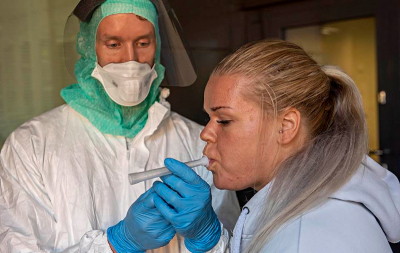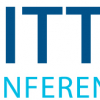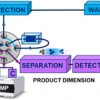
Working with partners at the IMSPEX Group as well as the Royal Infirmary of Edinburgh and Germany’s Klinikum Dortmund Hospital, a research team led by Loughborough University has been able to identify candidate biomarkers present in the breath of someone affected by Covid-19. Utilising technologies developed by GAS GmbH as part of the TOXI-Triage project, the team has demonstrated how these markers can be used to rapidly distinguish Covid-19 from other respiratory conditions at point of need, such as an emergency department, a workplace or a care setting, with no laboratory support.
IMSPEX will be working alongside researchers to help develop and scale such technology. Its BreathSpec device has been a key tool used by researchers in the analysis of volatile organic compounds (VOCs) in human breath. Ninety-eight patients were recruited for the feasibility study, of whom 31 had Covid-19. Other diagnoses included asthma, exacerbation of asthma and COPD, viral pneumonia, other respiratory tract infections and cardiac conditions. Participants gave a single breath-sample for volatile organic compounds analysis by GC-IMS. This analysis identified aldehydes (ethanal, octanal), ketones (acetone, butanone) and methanol that discriminated COVID-19 from other conditions.
Speaking about the feasibility study, Paul Thomas, Professor of Analytical Science from Loughborough’s Department of Chemistry, said: “We are hugely encouraged by these findings. Employing tried and tested techniques used during the TOXI-Triage project, suggests that Covid-19 may be rapidly distinguished from other respiratory conditions.”
“To develop this technique further larger studies are required, together with complementary GC-MS studies, to build on the data collected so far. If shown to be reliable, it offers the possibility for rapid identification or exclusion of Covid-19 in emergency departments or primary care that will protect healthcare staff, improve the management of patients and reduce the spread of Covid-19.”
Speaking about their involvement with the project, Emma Brodrick, Systems Application Manager at IMSPEX said: “Currently the two leading tests for Covid-19—antigen detection and PCR—both utilise invasive means of taking samples, which can be uncomfortable for the patient and may discourage some from going to get a test they desperately need. We are excited to be working with NHS Trusts in Scotland, Klinikum Dortmund in Germany and Loughborough University to develop a minimally invasive test, that produces results rapidly, indeed in TOXI-Triage our results were within one minute.”
CEO of the IMSPEX Group, Santi Dominguez, added: “The IMSPEX Group is very pleased that our ground-breaking technology has delivered these exciting results. They offer the possibility not only to dramatically improve people’s experience of taking a Covid-19 test but also to play a part in re-starting the economy through rapid screening of large numbers of people, at airports and other transportation hubs, for example. What will be needed now will be to rapidly acquire more data to continue to develop the test, and institutional and investor support to scale our manufacturing capability. The IMSPEX Group is looking forward to this challenge.”
The research paper has been published in EClinicalMedicine.









